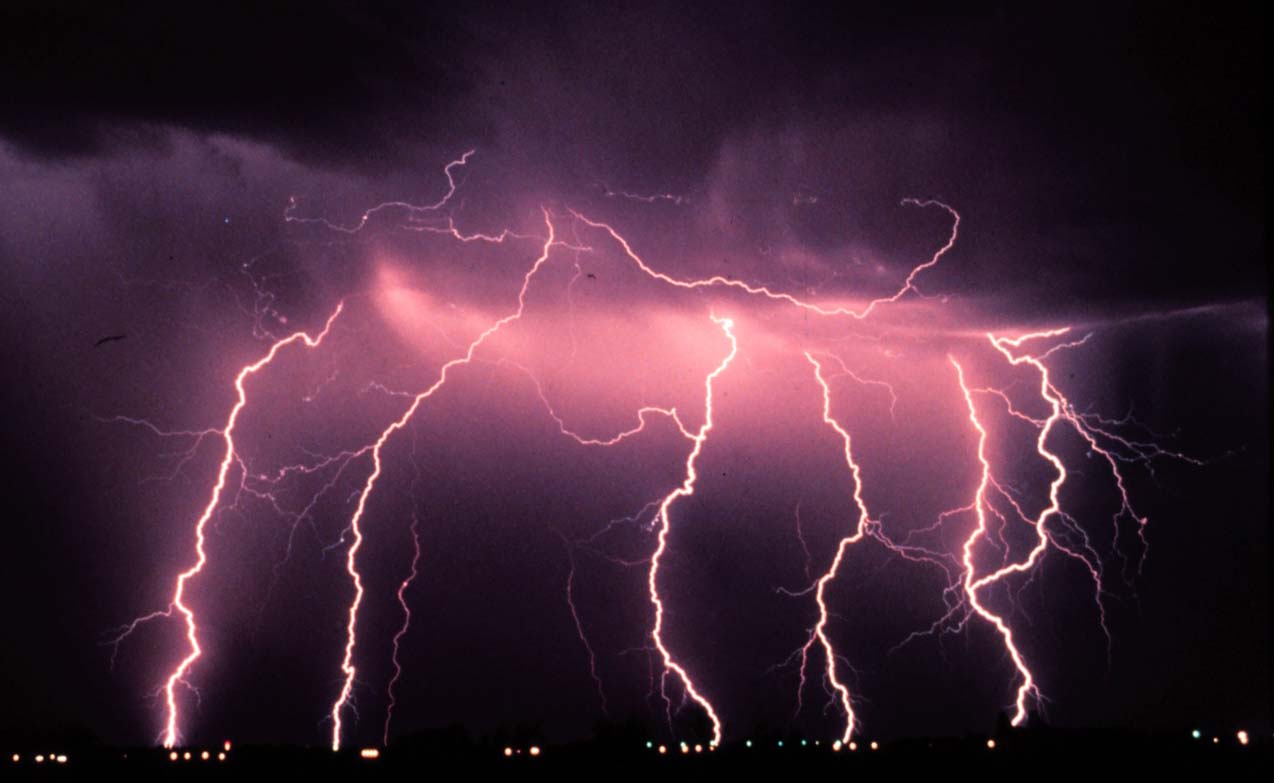Lightning Strike: Don’t Be Nature’s Conductor!
(Picture credit: Cosmicconvergence.org)
While working for Dr. Dwyer in the Geospace Physics Lab here at Florida Tech, I came across a very interesting article about some lesser known effects of being struck by lightning. So I thought I would share exactly why it is a very bad idea to get hit by lightning!
As of 2008, statistics reported approximately 24,000 deaths and 240,000 injuries every year as a result of lightning. These do not specify between injuries or death caused by a direct strike, an indirect strike or resultant consequences of the strike, however. A direct strike is when a person is actually part of the flash channel, the lightning current traveling through the person’s body to reach the ground. The high voltage causes electroporation, the process where holes are ripped through cell membranes, causing serious damage to nerves and muscles. Indirect strike is actually the one that causes the most harm, and it is due to ground current, aka “step potential.”As the flash channel discharges, surface charges on Earth are drawn toward it, with some voltages reaching into the thousands per foot. The current travels the path of least resistance, including using any human or animal in the vicinity, which will conduct much better than the ground. Resultant consequences include fires, explosions, or shock waves that cause injury and/or death due to a lightning strike.
The initial surge of current through a lightning strike victim can knock the person out, cause a heart attack, temporarily paralyze the person or give the person a concussion, among other such immediate effects. But in the article I found are some not-so-immediate consequences that have been reported by numerous lightning strike victims. The first are Lichtenberg figures, strange branching lesions that form on a person’s body, pictured below. They can stay a brief time or the person may have them for several months after being struck.

Several long-term effects due to nervous system damage are mentioned, such as sleep disorders. “Basic neural circuits may no longer function properly and sleep patterns can be disturbed.” Insomnia or excessive sleeping can ensue. Impotence and a drop in libido are also reported quite often by lightning victims. Less often, people report having more heat flashes than normal, also a possible result of nerve damage.
Chronic pain is quite common, especially with intense headaches and back pain. Ringing in the ears and loss of balance can be found in patients as well. Increased irritability is a common trend. More serious brain injuries can result in seizures, sometimes developing into epilepsy. Some people may suffer from chronic short-term memory loss, from simply uncontrollable “zoning out” to forgetting weeks at a time.
All in all, getting hit by lightning is no fun! I found a survivor’s account detailing his experience during and after the strike. An excerpt is given below, and I would highly suggest anyone who finds this topic even mildly interesting to visit the website to read the entire account. I had no idea it could be so hard to convince others you had actually been hit by lightning. The moral of the story: be extremely careful outside when a storm is approaching and try not to walk around outside when there is lightning and thunder. This doesn’t guarantee anything, but it immensely reduces your chances of being struck!
“All [Jerry] LeDoux remembers about the moment he was struck in August 1999 is that he was standing ankle-deep in a puddle when he was overcome by an intensely bright light. He woke up a half-hour later, 20 feet away, with a vague taste of battery acid in his mouth, he said. The soles of his shoes had melted, his two-way radio had exploded, and several of his teeth had shattered. The medical ID tag he wore around his neck was melted into his chest.”






